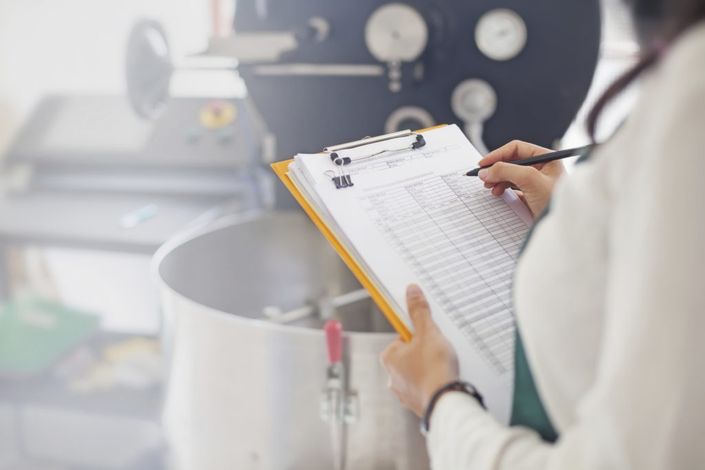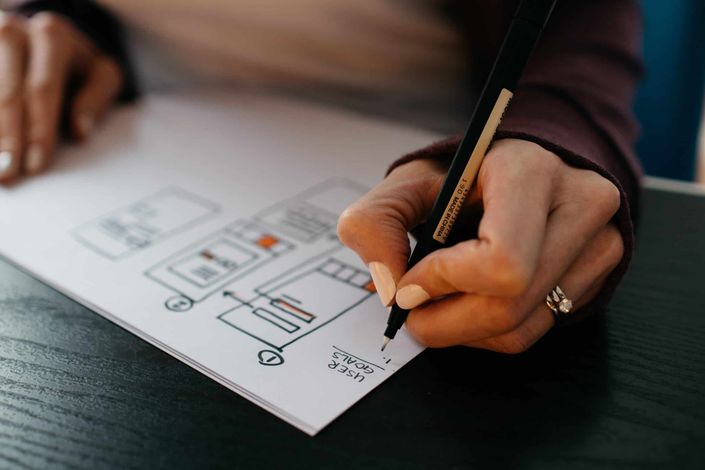Process Validation Guidance Requirements (FDA and EU Annex 15: Qualifications and Validation) Course Description
This FIVE HOUR FDA Process Validation Training session is an interactive ON-LINE Seminar that can provide a channel to augment the understanding of the trainees regarding the Constant Process Verification, will be revised in detail: The training course includes all necessary information regarding where it begins; what it includes; and, when it ends.
The Process Validation Guidelines (January 2011) and the EU Annex 15: Requirement and Authentication (October 2015) outline the overall values and methods the two controlling bodies reflect suitable elements of process validation for the production of human and animal drugs and biological foodstuffs, including Active Pharmaceutical Ingredients (APIs). This directive aligns Process Validation activities with a product life cycle concept and with existing FDA and EU guidance, including the FDA/International Conference on Harmonization (ICH), Guidance for Industry, Q8 (R2) Pharmaceutical Development, Q9 Quality Risk Management, and Q10 Pharmaceutical Quality System. The life cycle concept, new to these Guidance, links creation and process development, qualification of the commercial manufacturing process, and maintenance of the process in a state of control during routine commercial production. This supervision also cares for process development and novelty through sound science and risk management. The new Process Validation Guideline/Practice includes elements of Process Validation as early as the Research and Development phase, and continues onward through Technology Transfer, into the Phase 1 IND Clinical Trial manufacturing phase, and ultimately into Phase 2 and 3, and then commercial manufacturing
Training Agenda – from Course Instructor
DAY 01 Agenda
- Overview, Goals and Objectives, Definitions.
- Process Validation - Its Importance within the Drug Industry
- What is included in the “New” Process Validation (PV) Guidance?
- The Constitutional and Supervisory Requirements for “PV”
- Interaction of the Three Stages with Procedure Validation
- General Considerations for ‘PV” – Stage 1
- Stage 2 – Phase 1. History and Controlling Basis
- Authentication Methods, cGMPs in Scientific Supply Manufacture,
- What’s Included within Phase 1, Stage 2
- A Review of Industrial Deliberations
- Special Industrial Situations within Phase 1
- Multi-Product Amenities and their Organization
- Management of Organic and Biotechnology Amenities
- Management of Sterile Products/Aseptically Produced Products
- The Necessities of Phase 1 Investigational Medication Necessities
- How does One Understand and Utilize Them?
- Regulatory Strategies for Phase 2 and 3 and their Incorporation within Stages 1 and 2
- Operation of Procedure Design to Regulate its Duplicability Competences
-
Organization of Amenities, Apparatus, and Values Requirement
DAY 02 Agenda
- General Deliberations for Procedure Authentication – Stage 2 Process Qualifications
- Requirement of Values and Gear
- Expansion of Ecological or Conservational Monitoring
- Development of Amenities Project
- Water Systems Development
- Special Deliberations for Procedure Authentication – Stage 2
- Appraisal of Special Study Protocols
- Studying the Special Requirements of Phase 2/3 Stage 2
- Overall Considerations for Process Validation – Stage 3 Sustained Process Corroboration
- Promising Continued Process Confirmation Remains in Control
- Use of Cautionary Letters as Instances
- A Review of EU Annex 15 and its Comparison to FDA’s Process Validation Guidance
- A Demonstration of Similarity Between the Two
- Simultaneous Issue of Process Presentation Qualification (PPQ) Batches
- Rationalizes Why it Requires being Accompanied by a Systematic Critical Overview
- Must be evaluated for Stability Program Inclusion
- Analytical Methodology and Process Validation
- Discusses the Need for Accurate and Precise Monitoring Techniques
-
Why are the Development Validated Methods necessary?
Common Questions from Trainees
Participants of the FDA Process Validation Training often raise the following questions to strengthen their foundational understanding and practical application:
- How can the two approaches—phase-wise and stage-wise—be integrated effectively?
- At what point do they converge, and how do they interact in practice?
- Can these approaches exist independently, or must they complement each other to ensure product quality, safety, and compliance?
- To what extent should each approach be applied during the product lifecycle?
- How does Stage 3 (Continued Process Verification) address complex challenges such as viral inactivation and removal, impurity clearance, process consistency, solution stability, endotoxin levels, bioburden, and advanced cell culture testing (DNA and host cell proteins)?
These critical questions are thoroughly discussed in Stage 2 (Process Qualification), with emphasis on the integration of Process Validation with Phase 1, 2, and 3 clinical requirements—highlighting where they overlap, complement, or remain distinct.
👉 To maximize learning, the seminar strongly recommends that organizations send a multidisciplinary team (QA, QC, RA, manufacturing, and development professionals) to ensure a well-rounded perspective and maximum benefit from the training.
Learning Objectives – FDA Process Validation Training
By the end of this training, participants will be able to:
- Understand why FDA Guidance and EU Guidelines on Process Validation are critical to the pharmaceutical and biopharmaceutical industry.
- Identify where process validation begins and how it evolves throughout the product lifecycle.
- Recognize how Stage 1 (Process Design) aligns with Phase 1 (Clinical Development).
- Learn which FDA sections are included and excluded in the “New” Process Validation framework.
- Explore the three stages of process validation and their applications within the updated guidance.
- Gain knowledge of validation and verification approaches outlined in the FDA guidance document.
- Review the legal and regulatory requirements for process validation and procedure approval.
- Examine Phase 1 guidance for industry and its application within the “New” Process Validation.
- Clarify the requirements and exemptions for investigational (Phase 1) drugs.
- Apply general considerations for Stage 2 (Process Qualification) in practical scenarios.
- Understand regulatory strategies for Phase 2 and Phase 3 and how they connect to Stages 1 and 2.
- Review general considerations for Stage 3 (Continued Process Verification) to ensure long-term compliance.
- Compare EU Annex 15 requirements with FDA’s Process Validation guidance to identify similarities and differences.
Probable Beneficiaries
The following professionals will gain significant value from FDA Process Validation Training:
- Quality Control (QC) Professionals
- Project Managers
- Quality Assurance (QA) Specialists
- Product Development Teams
- Regulatory Compliance Professionals
- Industrial and Facilities Specialists involved in process validation and compliance activities
- Professionals seeking to enhance their knowledge of the challenges and requirements related to method validation and endorsement
Frequently Asked Questions (FAQ)
Q1. Who should attend this seminar?
A1. This program is ideal for professionals in Quality Assurance, Quality Control, Regulatory Compliance, Project Management, Product Development, and Biopharmaceutical Manufacturing, as well as those seeking to strengthen their understanding of FDA process validation requirements.
Q2. What will I learn from this training?
A2. You will gain a practical understanding of FDA and EU guidelines on process validation, lifecycle approaches, risk-based strategies, documentation practices, and compliance techniques tailored for biopharmaceutical manufacturing processes.
Q3. Is the seminar interactive?
A3. Yes. The virtual format includes live presentations, case studies, and Q&A sessions to ensure participants can clarify concepts and apply them to real-world scenarios.
Q4. Will I receive certification?
A4. Yes. All participants will receive a Certificate of Completion, which can support professional development and compliance training records.
Q5. Do I need prior knowledge of process validation?
A5. No prior in-depth expertise is required. The course is structured to benefit both beginners and experienced professionals by covering foundational principles as well as advanced regulatory updates.
Q6. How will this training benefit my organization?
A6. By attending, your team will be better equipped to design, execute, and document validation processes, reduce compliance risks, and improve overall product quality and regulatory readiness.
⭐ Best Customer Reviews
“Highly Practical and Insightful”
This seminar provided exactly what I needed – clear explanations of FDA requirements and practical examples I could apply immediately in my work. The trainer’s expertise in biopharmaceutical manufacturing was outstanding.
— QA Manager, Biotech Firm
“Excellent Balance of Theory and Real-World Application”
The course covered regulatory guidelines in detail but also gave us real-world case studies, which made complex concepts much easier to understand. I feel more confident handling validation projects now.
— Senior Process Engineer, Pharmaceutical Company
“Engaging and Well-Structured”
Even though it was virtual, the sessions were highly interactive. The Q&A sessions and case discussions helped me clarify doubts and gain deeper insights into compliance challenges.
— Regulatory Affairs Specialist

Know Your Faculty
Barry A. Friedman, PhD, is a Consultant in the Biotechnology, Regulatory Compliance and Aseptic Processing Arena. Dr. Friedman possesses over 30 years of industrial managerial experience in various aspects of biopharmaceuticals and medical devices to include regulatory compliance, GLP/GMP, quality control, auditing, microbiology consulting, expert witness, sterility assurance, microbiological/analytical validations and fermentation technology.
As the Director of Quality Control, he managed a multi-shift Department of thirty one individuals involved in client management, the receipt and testing of raw materials, environmental monitoring and microbiology, analytical chemistry and QC compliance for the production of Phase 1, 2, 3 and commercial products manufactured from bacteria, yeast and mammalian cells. In this capacity, Dr Friedman enjoyed many client and regulatory interactions, both domestic and international.






